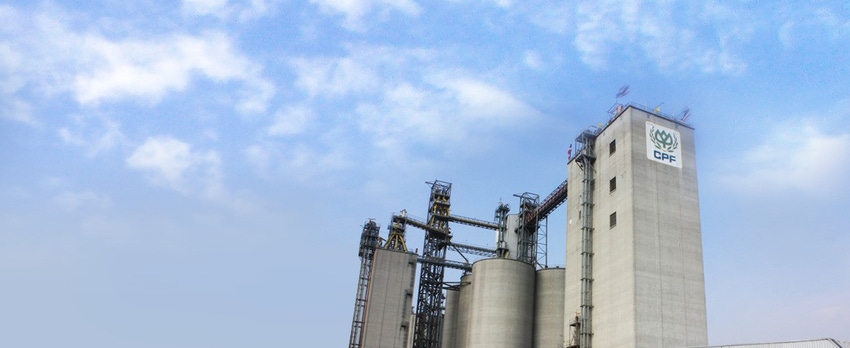Thailand's food industry focused on cracking down on unfair labor practices both internally and at supplier level.
July 18, 2018

Thailand is aiming to reclaim its place among the world's best food producers with a trustworthy supply source that is built by everyone in the food business together to assure that “Made in Thailand” products are from safe and slavery-free sources.
The U.S. Department of States’ latest report on "Trafficking in Persons" (TIP), in fact, promoted Thailand from the watch list to Tier 2. TIP is the principal diplomatic tool to engage foreign governments on human rights protection.
In the past few years, Thailand's seafood industry has been spotlighted by economic power houses like the U.S. and European Union to implement stringent restrictions to crack down against unfair labor practices.
Likewise, the Thai government has urged concerned businesses to take serious actions on humane principles and is also requiring the implementation of fair practices from upstream to downstream along the supply chain.
Among Thai seafood exporters, Charoen Pokphand Foods PCL (CPF), as the leading shrimp exporter, has made humane practices a priority. The company has implemented human rights practices in its manufacturing chains and among its suppliers. Recently, the company hosted “CPF Capacity Building for Partnership 2018,” a training program to provide more information focusing on labor laws and international standard requirements.
CPF’s suppliers were trained by experts from the Department of Labor Protection & Welfare and the Thailand Institute of Occupational Safety & Health. The training program aims to guide suppliers through developing their workforce practice to meet global demand. It will enable them to gain a competitive advantage and survive a changing business environment.
Kittipong Laonipon, deputy director general of Department of Labor Protection, has said it is the Thai government's policy that companies follow the human rights principle and international standards in response to regulations, policies and global trends. All workers must be treated fairly and work in the danger-free workplace, Laonipon noted, adding that the government strongly encourages companies to conduct responsible workforce management in line with Thai Labor Standard and Sustainable Development Guidelines, Good Labour Practices (GLP).
Wuthichai Sithipreedanant, senior vice president–social responsibility and sustainability development for CPF, said adhering to human rights and fair labor practices that are in compliance with Thailand's and international standards can strengthen CPF’s competitive advantage.
“Today’s consumers are looking at their foods beyond taste, quality and safety. We are conscious consumers. For example, when we drink a cup of coffee, sometimes we wonder where it came from [and whether] it hurt the environment,” he said. “Therefore, our task is to gain consumers' trust on our business and supply chain.”
CPF’s attempt to end forced labor and promote fair treatment of all workers is demonstrated through its Sustainable Sourcing Policy and Supplier Guiding Principle, which have been communicated to business partners. The company also is providing training for its suppliers and encourages key suppliers to conduct a sustainability self-assessment.
To ensure that all suppliers are following the same international standard, the company conducts independent third-party and internal audits of critical suppliers in animal feed raw materials, food ingredients and packaging groups, covering environmental, human rights and labor. If the supplier cannot meet the standard, CPF will support them to improve their process. The audit is expected to be completed by 2020.
The company’s work has been extended to the national level. It jointly establish Fishermen’s Life Enhancement Centre in Songkhla with government and private agencies. The center aims to counter human trafficking and illegal labor as well as provide basic medication service, occupational training and education to workers and their families.
In its chicken business, CPF and the Department of Labor Protection & Welfare have joined forces to guide contract farmers to improve labor practices in line with the GLP since 2016.
All of CPF’s poultry farms have complied with GLP practices since 2017 and are expected to be certified under the TLS 8001-2010 Thai Labour Standard within the year.
To boost the reputation of Thailand's chicken industry, CPF, the Department of Labor Protection & Welfare and the Thai Broiler Processing Exporters Assn. developed a guideline for good labor practices for chicken farms and hatchery in 2016. The guideline is being used by farmers and members of the association.
It also initiated “Labor Voices by LPN,” a third-party hotline operated by LPN, a non-government organization with 30 years of experience with migrant workers. The hotline aims to promote awareness of human rights and to provide a channel for all workers -- regardless of their nationality -- to voice their concerns.
Moreover, CPF said it has co-founded the Seafood Task Force, comprised of government agencies, leading food producers, feed producers, buyers and non-government organizations, to drive the social and environmental changes in Thailand's seafood industry through a responsible, transparent and traceable supply chain.
You May Also Like


.png?width=300&auto=webp&quality=80&disable=upscale)
